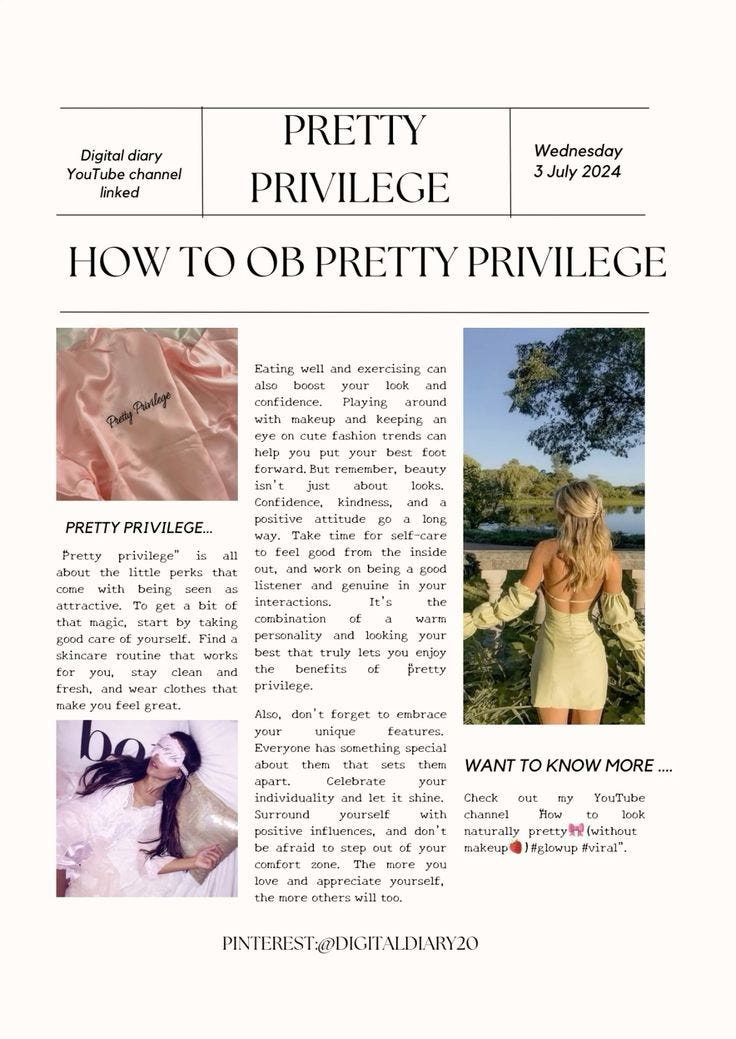note: hii! sorry for not posting for a while, but I hope you enjoy nontheless :’)
How many sins can Beauty buy before the Beast is due?
I watch her with breathless fascination; a siren calling sailors to the water. There’s something magnetic in the way she acts, in the way she changes the air of every room she enters.
Even when she ruins things with her careless words and careless hands, you don’t take notice. No one does.
She hides behind the veil like it’s a kindness, but you can feel her watching. Her presence pulls you closer; to something you can’t place a finger on but know you should fear.
She doesn’t need to attack or scream or wield divine power to break you. For in the few moments before she does, you realize it’s your own hubris that led you to this.
And then you meet her gaze; pure malice, nothing less. Soon you can’t move, limbs pinned in place—it’s her, just her, all of her. A beauty so absolute it hardens you, turns you into an example for those to come after you: The veil never meant safety. It meant demise.
It’s a funny thing, love. It teaches you to see past her wrongs. But does she deserve such grace? Some would say no—some would call it foolishness, not love.
As you’ve probably noticed, there’s an abundance of ‘exposing influencer’ posts and videos online. But something struck me as I delved a little deeper: when the person under scrutiny is conventionally attractive, the backlash is often lessened. It’s not that they face no consequences—that would be absurd. But the very idea that beauty can lessen accountability feels like a subtler kind of cruelty, one that extends not only to those who face harsher judgment but to the notion of fairness itself.
Beauty has always been currency. It’s traded in glances and opportunities, in doors held open and voices softened. Its power is instinctive, primal even. And while society has evolved in countless ways, this reverence for physical attractiveness remains deeply ingrained in our minds. We see it in every minute of our lives—and nowhere is it more apparent than on social media.1
In the world of influencers, appearance is a brand, and beauty doesn’t just open doors; it protects. Pretty privilege shields its beneficiaries in ways that are practically invisible (though sometimes can be visible), their mistakes less noticable by the grace granted to them simply for existing in the form they do. The psychological roots of this bias run deep; studies have shown that attractiveness influences perceptions of trustworthiness, competence, and even morality.
It’s not that attractive influencers entirely escape criticism; the backlash is there, but it carries a particular restraint. “They didn’t mean it,” the comments often defend; “They’re only human.” The irony, of course, is that this kind of selective understanding feels like anything but humane.
The disparity isn’t just unjust—it’s revealing. It exposes the faults in our collective moral compass2; the ways we’ve internalized and perpetuated a hierarchy that places appearance above action. More troubling still is what this says about us as a society. If beauty can absolve, then what are we really valuing? Is it integrity, or is it the illusion of perfection? And if it’s the latter, what does that mean for those who don’t fit the ever-changing beauty standards?
Pretty privilege doesn’t just harm the ‘unattractive’3. It creates an imbalance that affects everyone. For those without it, the harshness of public judgment is amplified, their mistakes magnified to grotesque proportions. But for those who benefit, the forgiveness granted isn’t absolute mercy—it’s often a trap. Beauty becomes the shield they’re never allowed to lower, an expectation they’re doomed to meet. Their human nature is altered by the need to maintain the illusion, and to uphold the standards that have always worked in their favor.
"It hurts to be beautiful" has been a cliche for centuries. What has been far less appreciated is how much it hurts not to be beautiful.4
Now, this isn’t to say that pretty privilege is inherently a curse, however it can undeniably change a person’s character, often for worse. Circling back to the influencer example, these kinds of people may be less affected by backlash for their actions, which then encourages them/gives them reason to repeat them.
The consequences are insidious; making the attractive person slowly gain more and more courage, while those around them become more and more blind towards the issue.
Once you notice this, it’s pretty much impossible to unsee. You wonder; is beauty is really enough to change fate? Should it be?
In the end, the issue isn’t just about influencers or internet drama. It’s about fairness. It’s about recognizing the biases that change our judgments and atleast make an attempt to move past them. Because while beauty might change the conversation, it doesn’t erase the harm. And until we learn to hold everyone to the same standard, no matter what they look like, we’re only perpetuating the very injustices we claim to fight against.
https://modernspace.com/the-impact-of-social-media-and-influencers-on-beauty-brand-marketing/
as in general society, I am not claiming that every human being shares these same beliefs.
the use of the word ‘unattractive’ here is not calling anyone unattractive, rather referring to those who do not fit the current aesthetic/standards of the modern time.








THIS IS SO TRUE and very well-written!!
THANK YOU FOR THIS!!! All of your essays are so well thought out and nuanced and this one in particular felt really needed in the time we’re living in. I’m really glad that you’ve brought more attention to an issue that has always bothered me. Amazing work as always 🫶🫶